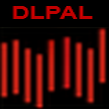
Lexically Diverse Hedge Funds Outperform
Do you want to have an outperforming hedge fund? Then write a description of your investment strategy more creatively, clearly and use more synonyms… Of course, I am just kidding. However, a recent academic study written by Joenväärä, Karppinen, Teo, and Tiu shows that text sophistication can be used to find skilled hedge fund managers. Lexical diversity is the propensity of the writer to use multiple synonyms rather than repeated words. Skilled and, therefore, cognitively gifted managers are more likely to use rich vocabulary when writing their strategy descriptions. Therefore, if you feel that your favorite manager composes clear and captivating texts, maybe he is skilled also in his primary role – investment management …
Authors: Joenväärä, Karppinen, Teo, Tiu
Title: Text Sophistication and Sophisticated Investors
Link: https://papers.ssrn.com/sol3/papers.cfm?abstract_id=3438758
Abstract:
We show that two novel measures of text sophistication, applied to hedge fund strategy descriptions, encapsulate incremental information about funds. Consistent with the linguistics literature, hedge funds with lexically diverse strategy descriptions outperform, eschew tail risk, and encounter fewer regulatory problems. In line with the literature, hedge funds with syntactically complex strategy descriptions report more regulatory violations and trigger more severe infractions. Fund investors recognize the dichotomy and direct flows accordingly, but not enough to erode away the alphas of lexically diverse funds. Our findings suggest that text sophistication measures provide texture on the cognitive ability and trustworthiness of sophisticated investors.
Notable quotations from the academic research paper:
” We ask the following question: Are sophisticated investors also sophisticated writers? A priori, it is not clear that they should be. On one hand, sophisticated managers with superior investment skills, and who are therefore cognitively gifted, should write in a sophisticated manner. On the other hand, managers who do not possess investment skills may write in a sophisticated fashion to deceptively signal investment prowess. The two measures of text sophistication that we enlist, namely lexical diversity and syntactic complexity, allow us to distinguish between the two cases.
Lexical diversity is the propensity of the writer to use multiple synonyms rather than repeated words and has been associated with cognitive ability and honesty.
Syntactic complexity is the inclination by the writer to favor complicated sentences characterized by heavy use of subordination and has been linked to deceptive behavior.
The differential loadings that the two measures have on deception suggest that only lexical diversity, and not syntactic complexity, provides a honest cue to managerial talent.
We apply textual analysis to hedge fund strategy descriptions, as unlike fund prospectuses and investor newsletters, strategy descriptions are readily available from commercial hedge fund databases. We argue that skilled and, therefore, cognitively gifted managers are more likely to employ rich vocabulary when crafting their strategy descriptions, which in turn engenders lexical diversity. Fraudulent managers are more likely to obfuscate and confuse when describing their strategies, which translates into syntactic complexity.

| What about Data? Look at Quantpedia’s Algo Trading Discounts. |
The analysis reveals substantial differences in expected returns, on decile portfolios of hedge funds sorted by lexical diversity. Hedge funds with high lexical diversity outperform those with low lexical diversity by an economically and statistically significant 3.63% per year (t -statistic = 7.45) after adjusting for co-variation with the Fung and Hsieh (2004) factors.
Hedge funds with lexically diverse strategy descriptions display several additional attributes that are attractive to fund investors. First, they deliver superior Sharpe ratios, information ratios, and Goetzmann et al. (2007) manipulation-proof performance measures. For example, high-lexical diversity funds exhibit annualized information ratios that are on average 1.07 units higher (t -statistic = 8.37) than those of low-lexical diversity funds. Therefore, the higher alphas of lexically diverse funds cannot be attributed to greater leverage or manager manipulation. Second, lexically diverse funds manage risk more judiciously. They eschew idiosyncratic risk and tail risk. In particular, lexically diverse and lexically homogenous funds exhibit annualized residual volatilities of 3.63% and 4.19%, respectively. The difference in annualized residual volatility is an economically and statistically relevant −0.56% (t -statistic = 2.54). Third, they face fewer regulatory actions, encounter fewer civil or criminal problems, and trigger fewer investment violations. Lexical diversity, therefore, predicts fund quality. These findings support the view that lexical diversity is associated with cognitive ability and trustworthiness in the hedge fund arena.
Our tests further reveal that the second measure of text sophistication we consider, namely syntactic complexity, is associated with deception at hedge funds. Funds whose strategy descriptions are syntactically complex experience more regulatory actions, violate more investment rules, and report more severe infractions, than do funds whose strategy descriptions are syntactically simple. After controlling for other factors including lexical diversity, an increase in syntactic complexity from the bottom 10th to the top 10th percentile is associated with a 4.18% increase in the probability of regulatory actions, a 3.48% increase in the probability of investment related infractions, and a 2.09% increase in the probability of severe violations. While syntactic complexity is positively related to fund returns and alphas when we do not control for lexical diversity, those relations are statistically insignificant and turn negative after controlling for lexical diversity.”
Are you looking for more strategies to read about? Sign up for our newsletter or visit our Blog or Screener.
Do you want to learn more about Quantpedia Premium service? Check how Quantpedia works, our mission and Premium pricing offer.
Do you want to learn more about Quantpedia Pro service? Check its description, watch videos, review reporting capabilities and visit our pricing offer.
Are you looking for historical data or backtesting platforms? Check our list of Algo Trading Discounts.
Would you like free access to our services? Then, open an account with Lightspeed and enjoy one year of Quantpedia Premium at no cost.
Or follow us on:
Facebook Group, Facebook Page, Twitter, Linkedin, Medium or Youtube
Share onLinkedInTwitterFacebookRefer to a friend

















